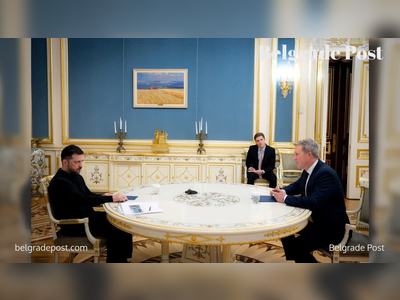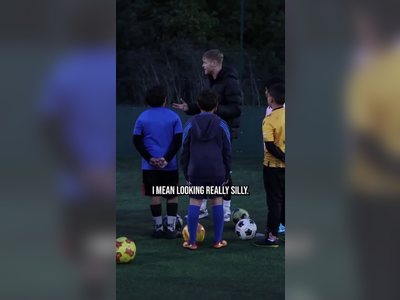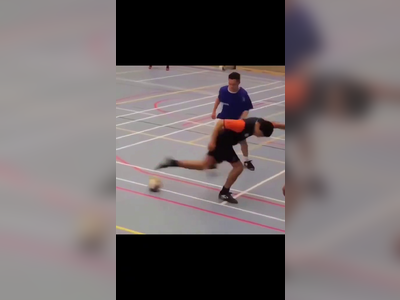Violence Erupts at Belgrade University Amidst Ongoing Student Protests
The assault on student Miloš Pavlović raises concerns over escalating tensions and institutional response.
On [insert date], a violent incident occurred in a student residence in New Belgrade, where Miloš Pavlović, a representative of students advocating for academic engagement, was physically assaulted by a group of individuals.
The attack coincided with ongoing student protests at the University of Belgrade, which have become increasingly polarized and contentious.
In response to the incident, the Higher Public Prosecutor's Office in Belgrade has instructed the Third Basic Public Prosecutor's Office to swiftly investigate and identify those responsible for the assault on the students who wish to continue their studies.
Dr. Valentina Arsić Arsenijević, a professor at the University of Belgrade's Medical Faculty, attributed the violence to a broader societal polarization that has led to divisions among students.
She emphasized that the administration's failure to appropriately respond to growing tensions has fostered an environment conducive to conflict, likening the current situation to the ideological divides seen during the COVID-19 pandemic.
She highlighted the emergence of factions within the student body, describing it as an alarming trend that could lead to further escalation.
Dr. Duško Prelević, a professor at the Faculty of Philosophy, remarked that the escalation of violence could be linked to delayed action from relevant authorities.
He pointed out that the situation has reached a critical state, emphasizing the responsibility of faculty deans in normalizing academic activities, noting that prior attempts to address the issue had stalled since January.
Dr. Aleksandar Lukić from the Institute of Political Studies characterized the violence as part of a coordinated psychological operation, suggesting that the assailants operated with a semblance of military organization, possibly organized through social media networks.
He condemned the attack on Pavlović, asserting that the normalization of such aggression represents a troubling shift in student activism.
The discussion around the incident has highlighted concerns regarding the safety and well-being of students within the academic context.
Observers note that the increasing division among student groups may hinder the overall academic environment, complicating efforts to return to normalcy.
The crisis has attracted attention to the need for a more unified approach to address both the academic disruptions and the underlying tensions that have now surfaced as violence.
The attack coincided with ongoing student protests at the University of Belgrade, which have become increasingly polarized and contentious.
In response to the incident, the Higher Public Prosecutor's Office in Belgrade has instructed the Third Basic Public Prosecutor's Office to swiftly investigate and identify those responsible for the assault on the students who wish to continue their studies.
Dr. Valentina Arsić Arsenijević, a professor at the University of Belgrade's Medical Faculty, attributed the violence to a broader societal polarization that has led to divisions among students.
She emphasized that the administration's failure to appropriately respond to growing tensions has fostered an environment conducive to conflict, likening the current situation to the ideological divides seen during the COVID-19 pandemic.
She highlighted the emergence of factions within the student body, describing it as an alarming trend that could lead to further escalation.
Dr. Duško Prelević, a professor at the Faculty of Philosophy, remarked that the escalation of violence could be linked to delayed action from relevant authorities.
He pointed out that the situation has reached a critical state, emphasizing the responsibility of faculty deans in normalizing academic activities, noting that prior attempts to address the issue had stalled since January.
Dr. Aleksandar Lukić from the Institute of Political Studies characterized the violence as part of a coordinated psychological operation, suggesting that the assailants operated with a semblance of military organization, possibly organized through social media networks.
He condemned the attack on Pavlović, asserting that the normalization of such aggression represents a troubling shift in student activism.
The discussion around the incident has highlighted concerns regarding the safety and well-being of students within the academic context.
Observers note that the increasing division among student groups may hinder the overall academic environment, complicating efforts to return to normalcy.
The crisis has attracted attention to the need for a more unified approach to address both the academic disruptions and the underlying tensions that have now surfaced as violence.
AI Disclaimer: An advanced artificial intelligence (AI) system generated the content of this page on its own. This innovative technology conducts extensive research from a variety of reliable sources, performs rigorous fact-checking and verification, cleans up and balances biased or manipulated content, and presents a minimal factual summary that is just enough yet essential for you to function as an informed and educated citizen. Please keep in mind, however, that this system is an evolving technology, and as a result, the article may contain accidental inaccuracies or errors. We urge you to help us improve our site by reporting any inaccuracies you find using the "Contact Us" link at the bottom of this page. Your helpful feedback helps us improve our system and deliver more precise content. When you find an article of interest here, please look for the full and extensive coverage of this topic in traditional news sources, as they are written by professional journalists that we try to support, not replace. We appreciate your understanding and assistance.










